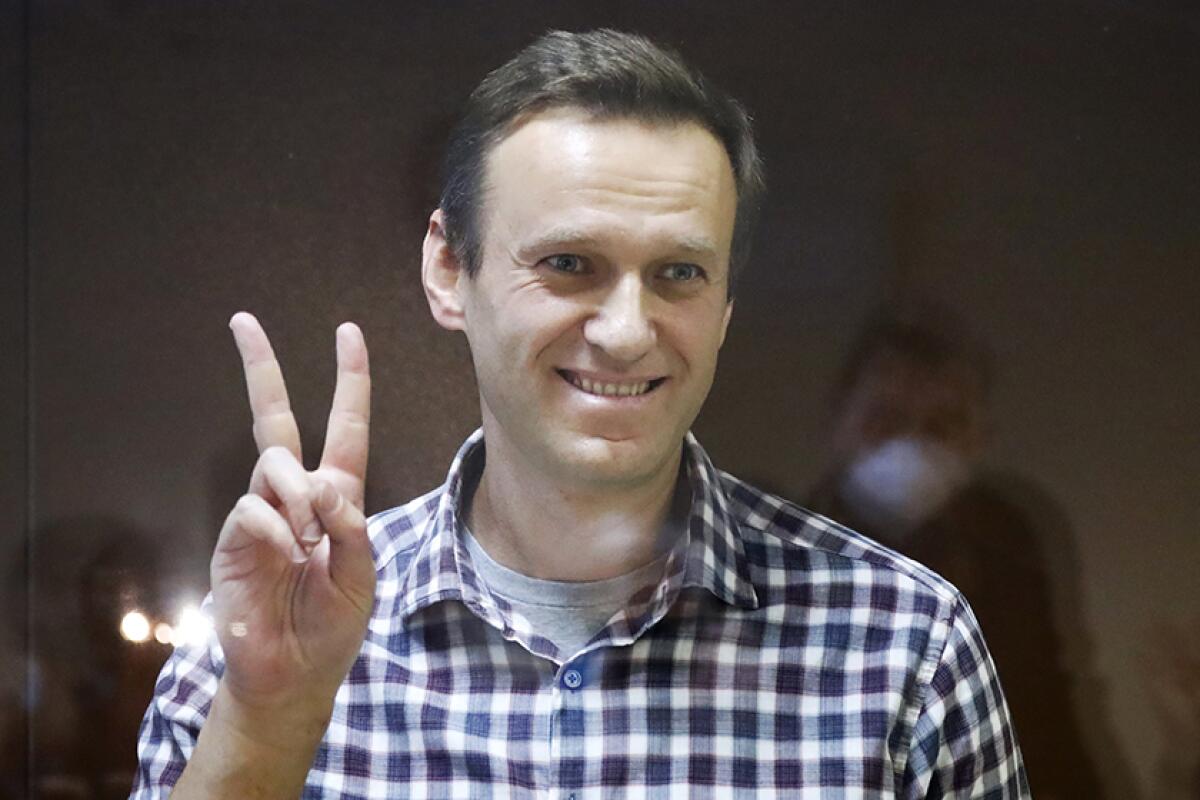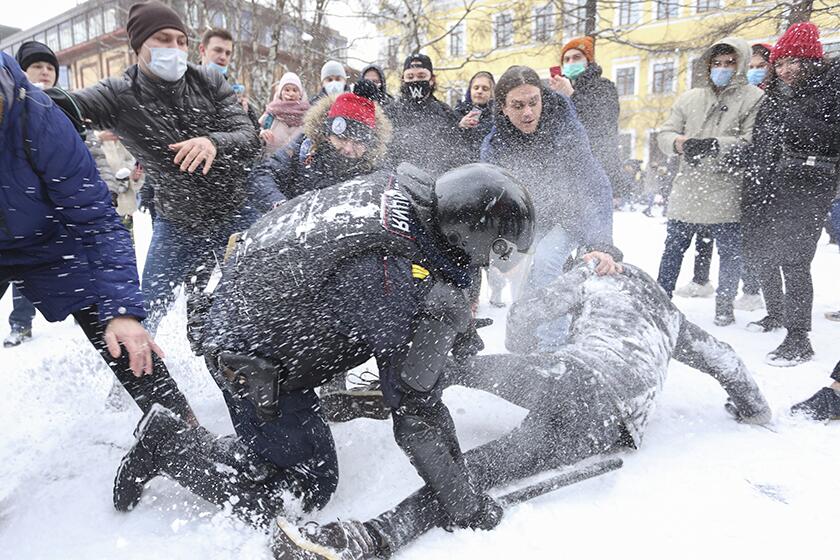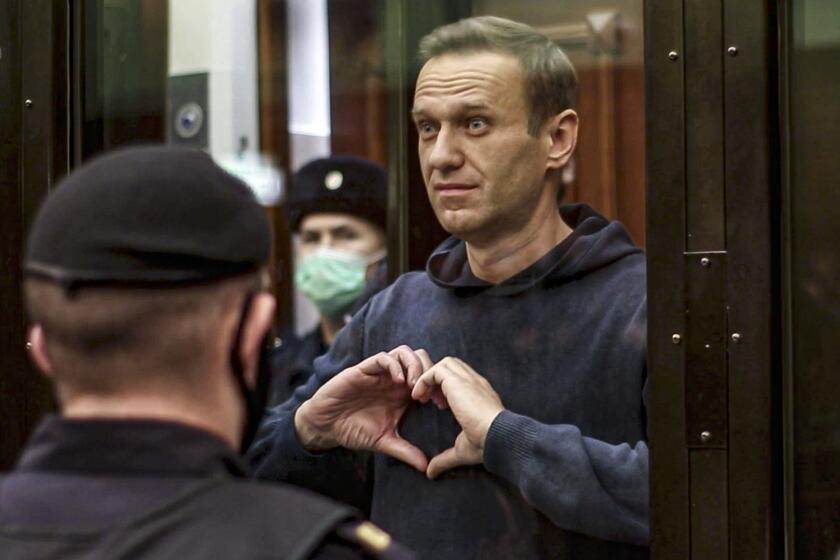Moscow court rejects Alexei Navalny’s appeal

- Share via
MOSCOW — A Moscow court on Saturday rejected Russian opposition leader Alexei Navalny’s appeal of his prison sentence, even as the country faced a top European rights court’s order to free the Kremlin’s most prominent foe.
A few hours later, a judge in a separate case ordered Navalny to pay a fine for defaming a World War II veteran.
During the first hearing, Navalny urged Russians to stand up to the Kremlin in a fiery speech mixing references to the Bible and Harry Potter.
Earlier this month, Navalny was sentenced to two years and eight months in prison for violating terms of his probation while recuperating in Germany from a nerve agent poisoning that he blames on the Kremlin. Russian authorities have rejected the accusation.
Navalny, 44, an anti-corruption crusader and President Vladimir Putin’s most prominent critic, had appealed the prison sentence and asked to be released. The Moscow City Court’s judge on Saturday only slightly reduced his sentence to just over 2½ years in prison, ruling that the month and a half Navalny spent under house arrest in early 2015 will be deducted from his sentence.
Speaking before the verdict, Navalny urged Russians to resist pressure from authorities and challenge the Kremlin to build a fairer and more prosperous country.
“The government’s task is to scare you and then persuade you that you are alone,” he said. “Our Voldemort in his palace also wants me to feel cut off,” he added, in a reference to Putin.
Thousands of Russians continue to protest the arrest of Alexei Navalny and their country’s increasingly authoritarian rule.
“To live is to risk it all,” he continued, borrowing from the animated sitcom “Rick and Morty.” “Otherwise, you’re just an inert chunk of randomly assembled molecules drifting wherever the universe blows you.”
Navalny also addressed the judge and the prosecutor, arguing that they could have a much better life in a new Russia.
“Just imagine how wonderful life would be without constant lying,” he said. “Imagine how great it would be to work as a judge when no one would be able to call you and give you directions what verdicts to issue.”
Navalny’s arrest and imprisonment have fueled a huge wave of protests across Russia. Authorities responded with a sweeping crackdown, detaining about 11,000 people, many of whom were fined or given jail terms ranging from seven to 15 days.
Russia has rejected Western criticism of Navalny’s arrest and the crackdown on demonstrations as meddling in its internal affairs.
In a ruling Tuesday, the European Court of Human Rights ordered the Russian government to release Navalny, citing “the nature and extent of risk to the applicant’s life.” The Strasbourg, France-based court noted that Navalny has contested Russian authorities’ argument that they had taken sufficient measures to safeguard his life and well-being in custody following the nerve agent attack.
The Russian government has rebuffed the court’s demand, describing the ruling as unlawful and “inadmissible” meddling in Russia’s affairs.
The sentencing of Putin critic Alexei Navalny doesn’t solve the Russian president’s problems.
In the past, Moscow has abided by the human rights court’s rulings awarding compensations to Russian citizens who have contested verdicts in Russian courts, but it never faced a demand by the European court to set a convict free.
In a sign of its long-held annoyance with the Strasbourg court’s verdicts, Russia last year adopted a constitutional amendment declaring the priority of national legislation over international law. Russian authorities might now use that provision to reject the court’s ruling.
After losing his appeal, Navalny had a second court hearing on charges of slandering a World War II veteran and was ordered to pay a fine of about $11,500. Prosecutors asked for a fine of $13,000.
Navalny called the 94-year-old veteran and other people featured in a pro-Kremlin video last year “corrupt stooges,” “people without conscience” and “traitors.” He rejected the slander charges, describing them as part of official efforts to disparage him.
Navalny said at the hearing that his accusers “will burn in hell.”
More to Read
Sign up for Essential California
The most important California stories and recommendations in your inbox every morning.
You may occasionally receive promotional content from the Los Angeles Times.












